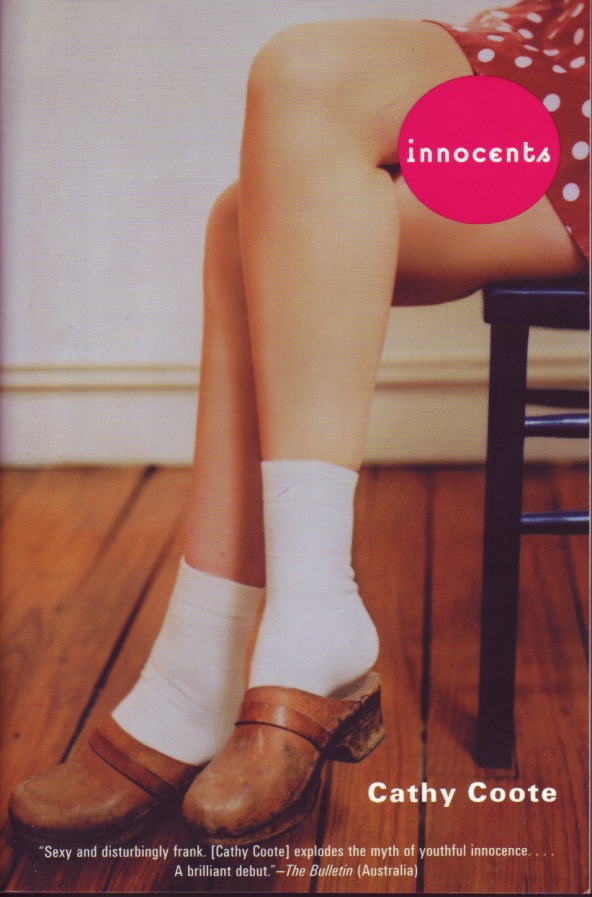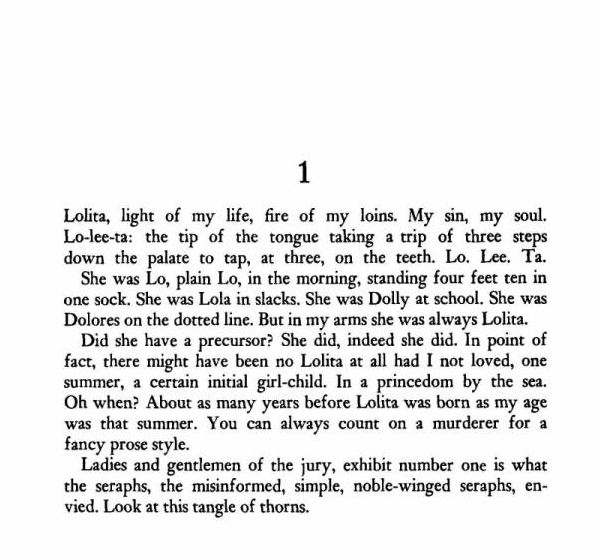Innocents & Lolita


The first page...
From the back cover:
Written when Cathy Coote was nineteen, Innocents is a taut, wickedly clever descent into the anatomy of an obsession, the debut of a precociously assured and provocative young literary voice. Forcing someone vulnerable and naive into a sexual relationship to satisfy a twisted desire is perverted, even evil. But when the perpetrator is a sixteen-year-old schoolgirl, is she culpable? And if the victim is her thirty-four-year-old teacher, shouldn't he have known better? Unforgettable, disturbing, and morally complex, Innocents permanently unsettles our notions of innocence, experience, and power, and suggests that we all are culpable.
From Kirkus Reviews:
Coote turns Nabokov on his head in this tale of an Aussie Lolita. . . . Coote deserves acclaim not just for the narrator's remarkably compelling voice but for so ruthlessly limning her deepening psychosis. . . . Tar-black comedy and psychosexual gamesmanship--both make for an enthralling and ultimately sobering debut.
Think of the claustrophobia in Dostoevsky's Crime of Punishment, but instead of sweltering with Raskolnikov in his musty room, under the sword of Damocles, one is trapped in an emotional maelstrom that excludes all--consumes all--as a teenaged predator preys on her helpless teacher and wrings all--girl, man, and reader--on the rack of illicit passion and forbidden desire. An indulgent, if tormented, voyeuristic read without the wider societal commentary--and thus, complexity--of Nabokov's seminal novel.

When I was reading Lolita for fun, the mere sight of this cover in class would drive the
Much has been made of Lolita as metaphor, perhaps because the love affair at its heart is so troubling. Humbert represents the formal, educated Old World of Europe, while Lolita is America: ripening, beautiful, but not too bright and a little vulgar. Nabokov delights in exploring the intercourse between these cultures, and the passages where Humbert describes the suburbs and strip malls and motels of postwar America are filled with both attraction and repulsion. (Simon Leake).


1 Comments:
Bloody good read, that. I never delved into "Lolita" for exactly the kind of intractable social metaphors you mentioned. Takes away from the underage sex, and all. My read of "Innocents" was far more blustery and engrossing and the author would have it be that way, I'm sure. It was, for me, the kind of book that gets in one's head and alters perceptions till it finally flushed itself out with its inevitable and unforeseen conclusion. I reckon that's the danger puritan's recognize: the power of a novel to morph and meld and reshape us. Dangerous.
Post a Comment
<< Home